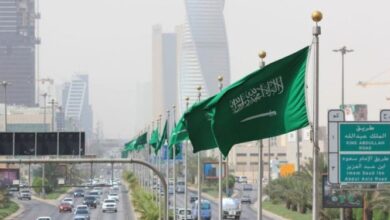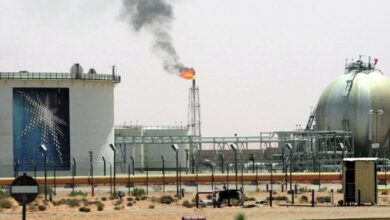WSJ: Saudi crown prince’s projects faltering

The Wall Street Journal said that the projects of Crown Prince Mohammed bin Salman are still faltering, revealing the Kingdom’s non-oil revenues as a result of high taxes.
The newspaper added that the Kingdom’s non-oil revenues were expected to quadruple in 2020. But government data showed that much of this revenue came from new taxes on citizens.
Five years ago, the Saudi crown prince pledged to unblock the economy from oil by 2020.
As the world’s largest exporter of crude seeks to maintain growth and create jobs, the Kingdom is doubling down on its commitment to hydrocarbons and veering away from greener energy sources.
The newspaper pointed out fears that the demand for crude oil will dry up faster than the Saudis think and are looking to sell as much as possible to finance the growth of other sectors such as tourism and technology.
Therefore, the Kingdom wants to slow down and extend its support from crude oil in the future. Last week, talks in OPEC over whether to increase crude production collapsed.
“The Saudis want to drive at 60 miles per hour and the Emiratis want to drive at 100 miles,” said Ayham Kamel, head of the Middle East division at political risk advisory Eurasia Group.
Kamel added, “Crown Prince Bin Salman has realized that moving away from oil is not actually in the interest of Saudi Arabia.”
Under the crown prince and within bin Salman’s projects, the Kingdom aimed to get rid of its dependence on oil now.
In 2016, he unveiled a plan to attract foreign capital and build non-oil industries, such as manufacturing cars and weapons.
The plan, dubbed Vision 2030, aims to transform the Kingdom into an industrial powerhouse and keep the Kingdom out of boom and bust cycles in global oil markets.
But while non-oil industries grew by 2.9% in the first quarter of 2020, the Kingdom’s oil sector still contributes up to 80% of the country’s budget revenue.
The bank said 88 per cent of Saudi Arabia’s foreign income comes from oil exports.
According to the World Bank, the share of oil sales in the Kingdom’s GDP increased to 24% in 2019 from 19% in 2016 when oil prices collapsed.





